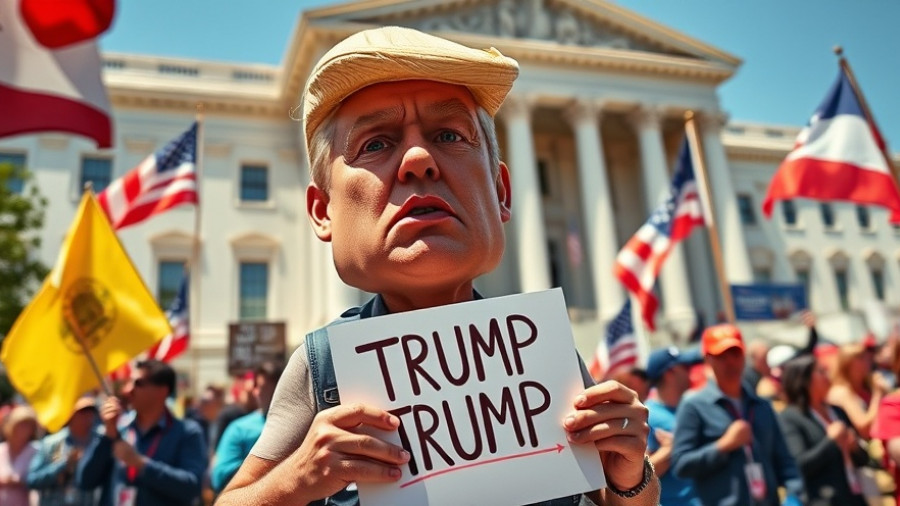
Understanding the ‘No Kings’ Protests and Their Significance
The “No Kings” protests held on Saturday, October 18, 2025, marked a significant resurgence of public dissent against the Trump administration, seen not only as a cry against perceived authoritarianism but also as a vibrant expression of democratic values. Organizers reported that over 7 million people gathered across 2,700 cities, from bustling metropolises to small towns, showcasing an unprecedented unity against the government’s current trajectory.
From Political Anger to Community Joy
A distinctive characteristic of these protests was their carnival-like atmosphere. Participants wore inventive costumes, brandished humorous signs, and even embraced inflatable frogs—symbols of resistance originating from Portland, Oregon. This lighthearted spirit resonated with both seasoned activists and first-time protesters alike, reinforcing a message that action can combine with joy and creativity. As one protester in San Francisco proclaimed, “Keep calm, keep marching!” This blend of community celebration with serious political messaging reflects how protests can serve as a powerful tool for civic engagement and solidarity.
The Diverse Coalition Behind the Movement
The demographics of the protesters were remarkably diverse. According to participants, the gatherings included teachers, military veterans, retired citizens, families, and youth. They united with shared grievances against issues such as immigration policies, budget cuts, and a perceived erosion of civil rights. Chris Scharman, a lawyer at a rally in Salt Lake City, emphasized a crucial point: “We shouldn’t be debating the value of people.” This sentiment captures the essence of the overall message: that democracy is for everyone and should be defended vigorously.
Future Implications of the Protests
As President Trump’s administration faces declining approval ratings and increasing scrutiny, the overwhelming turnout at these rallies signals a potential shift in political engagement. Political experts suggest that while the administration may dismiss these crowds as politically motivated, they represent a broader discontent that could shape upcoming electoral battles. Political scientist Jeremy Pressman noted, “The intensity of the action is going to feed into the intensity of the counteraction.” This interplay of activism and political change will be pivotal as the nation approaches a critical election season.
A Global Response to National Concerns
The ripple effects of the “No Kings” protests were not confined to U.S. borders. Demonstrations sprang up outside U.S. embassies and consulates around the world, with activists in Paris and Berlin echoing American protesters' frustrations. This global solidarity indicates a deep-seated concern for democratic principles and human rights, uniting people internationally in a shared cause against autocratic governance.
Why Participation Matters
As we reflect on the significance of these protests, it is clear that engagement in civic discourse and participation in such movements is invaluable. Each individual’s voice contributes to a larger dialogue about the future of democracy. Whether through physical protest, social media, or community organizing, expressing dissent is vital for ensuring that governance remains a reflection of the people's will and not the ambitions of a select few.
In the spirit of civic engagement, consider finding ways to connect with local activism or volunteering your time to support causes that resonate with you. Every action counts and can make a significant impact.
 Add Row
Add Row  Add
Add 




Write A Comment